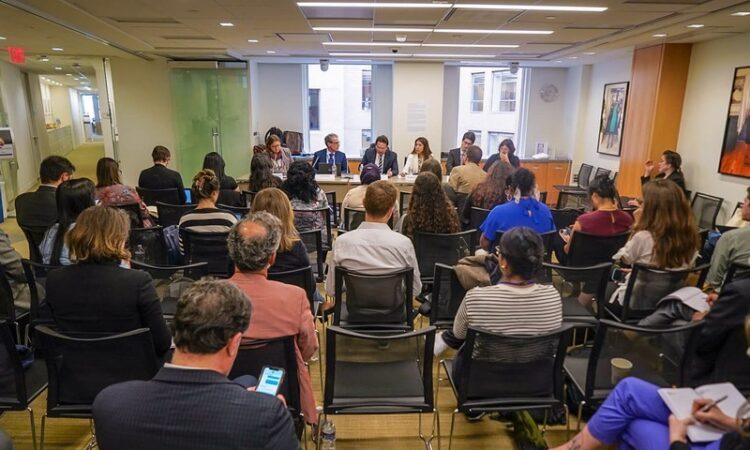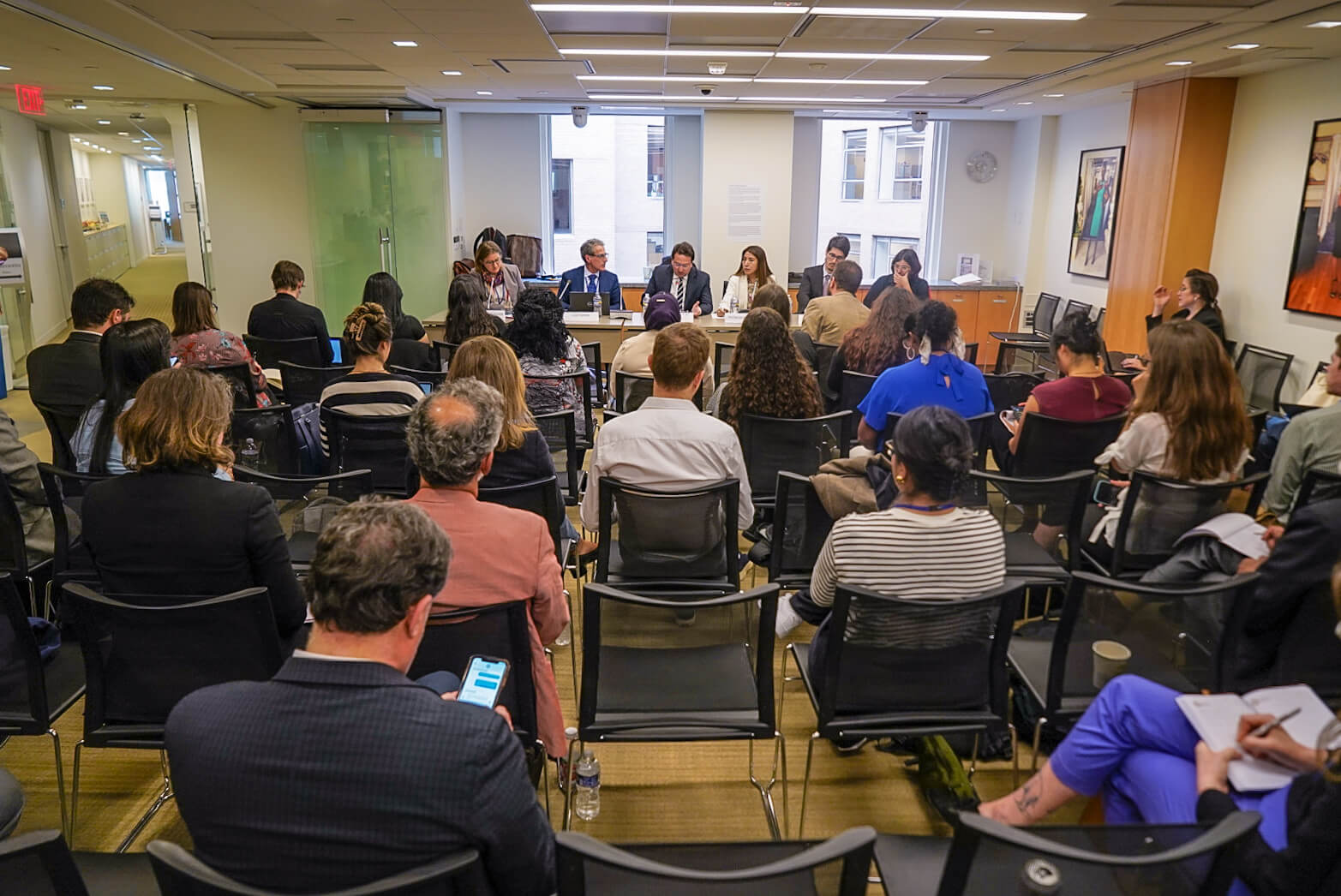
FINANCE TRACK
Representatives from Ministry of Finance of Brasil took part in the meeting with global civil society at the Open Society Foundation in Washington DC, in the United States. The meeting was part of the activities of the G20 Finance Track meeting in Washington.

Antonio Freitas, Undersecretary for International Finance and Economic Cooperation at the Ministry of Finance, shared with representatives of various organizations the priorities of the Brazilian presidency of the G20, also recalling the history of the construction of the group as a response to international economic crises.
“The G20 has several challenges ahead of it. We are tackling structural issues. We have the Task Forces against Hunger and Climate Change, also establishing a strong dialogue with civil society and international organizations,” said Freitas.
Tatiana Berringer, coordinator of the Social G20 in the Finance Track, recalled that the debate within the Track has a “closed, not open” character, and that Brasil hopes that the Brazilian initiative of opening up to civil society can be maintained in the coming cycles.
“The Brazilian presidency wants to promote social participation in the G20. We really hope that this process will leave a legacy for the group, in which global civil society has space,” he said.
Marcos Vinicius Chiliatto, Brasil’s representative on the board of the World Bank, explained how the institution target the possibility of reforming international financial institutions.
“The main point of the Brazilian presidency for the multilateral development banks is the need for coordination, for these institutions to work as a system,” he said.
The meeting “Brazilian Presidency of the G20: priorities and challenges of the Financial Track” was organized in partnership with the Breton Woods Project. It was also attended by Patrícia Miranda, director of global advocacy for the Latindadd network, and Iolanda Fresnillo, from the European NGO Eurodad.






